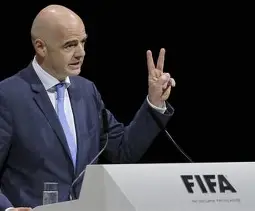While Niger and the Central African Republic are innovating with FIFA, Cameroon is lagging behind in integrating soccer as a lever for educational and social development.
On July 26, 2025, Niger became one of the first two African countries to sign FIFA’s “Soccer for Schools” program, an ambitious agreement aimed at integrating soccer into the school system. This initiative, which combines teacher training, educational content, tournaments, and monitoring and evaluation, is hailed as a decisive step toward a more inclusive, civic-minded education rooted in the social realities of young Africans.
In comparison, Cameroon, despite being a major football nation, has not yet embarked on a similar structural approach. While initiatives do exist through certain local NGOs, training clubs, and one-off projects by the Cameroonian Football Federation (Fecafoot), they remain isolated and lack institutional anchoring in the national education system.
Yet the stakes are immense. Cameroon has more than 10 million young people under the age of 25, representing more than 40% of the population. In a context of youth unemployment estimated at more than 13% and an informal sector dominated by precarious employment, coaching young people through sport appears to be an under-exploited avenue for social inclusion and mobilization.
Experts such as Patrick Mboma, a former international player who has turned his attention to sports development, are calling for “football to be used as a tool for citizenship and education.” He advocates close cooperation between the Ministry of Education, the Ministry of Sports, and Fécafoot in order to implement a model adapted to the Cameroonian context.
Beyond personal development, such a policy could stimulate job creation in the sports sector, strengthen local infrastructure, and promote regional sports diplomacy. Niger’s success could therefore serve as a revelation for Cameroon: what if the future of Cameroonian soccer lay in schools?



